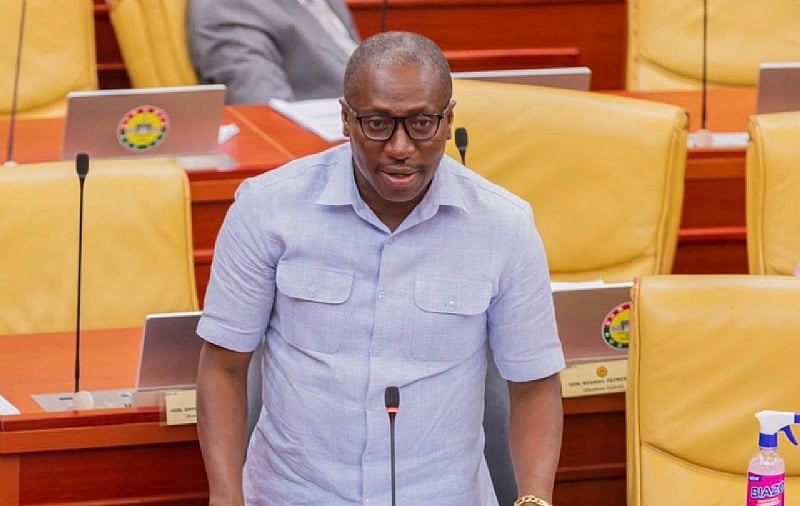The New Patriotic Party (NPP), now in the minority in Ghana’s Parliament, finds itself navigating a challenging political landscape following its setback in the 2024 elections. Their parliamentary representation has dwindled from a comfortable majority of 137 seats to a significantly reduced 88, a situation described by Minority Leader, Alexander Afenyo-Markin, as turbulent. This decline in parliamentary strength translates into a diminished influence on legislative processes and a tougher battle to effectively represent their constituents’ interests. The loss of the Akwatia seat in a recent by-election further exacerbated their predicament, underscoring the party’s struggle to regain momentum and public support. This reduced parliamentary presence necessitates a reevaluation of strategies and a concerted effort to rebuild and reclaim lost ground.
Afenyo-Markin, acknowledging the party’s difficult position, emphasized the NPP’s resolve to rebound from this electoral defeat. He drew parallels with the National Democratic Congress’s (NDC) experience after their defeat in 2000, highlighting their initial struggles and subsequent resurgence. The NDC, following their loss, experienced internal disarray and a series of electoral setbacks, including losses in seven consecutive by-elections. Yet, they managed to regroup, strategize, and eventually return to power in 2008. This historical precedent, according to Afenyo-Markin, serves as a source of inspiration and a roadmap for the NPP’s own recovery. He stressed the importance of learning from the NDC’s journey, emphasizing the need for resilience, strategic planning, and a renewed focus on connecting with the electorate.
The NPP’s current predicament involves more than just a reduction in parliamentary numbers; it represents a broader challenge in maintaining its political relevance and influence. Having held power for eight years, the party must now adapt to the role of opposition, holding the government accountable while simultaneously rebuilding its own internal structures and regaining public trust. This transition requires a careful assessment of the factors that contributed to their electoral defeat and a willingness to adapt their policies and strategies to better resonate with the electorate. The party needs to engage in introspection, identify areas for improvement, and present a compelling vision for the future that can win back the support of voters.
Furthermore, the NPP faces the added pressure of a resurgent NDC, now in control of both the executive and legislative branches of government. This dynamic creates a more formidable opponent, making the NPP’s task of regaining power even more challenging. The NDC’s current dominance necessitates a more strategic and nuanced approach from the NPP. They must effectively leverage their role as the opposition to scrutinize government policies, highlight shortcomings, and offer alternative solutions. At the same time, they need to project an image of unity and competence, demonstrating their readiness to govern should the opportunity arise.
The loss of the Akwatia seat serves as a microcosm of the NPP’s broader challenges. It underscores the need for the party to address local concerns, strengthen its grassroots organization, and re-engage with voters on a more personal level. By-elections often serve as a barometer of public sentiment, and the loss in Akwatia suggests that the NPP needs to re-evaluate its approach and strengthen its connection with local communities. This requires a renewed focus on local campaigning, addressing specific community needs, and building stronger relationships with constituents.
In conclusion, the NPP’s current situation demands a multifaceted approach that combines internal reform, strategic opposition, and a renewed focus on connecting with the electorate. The party must learn from its past mistakes, adapt to the changing political landscape, and present a compelling vision for the future. The road to recovery will undoubtedly be challenging, but the NDC’s own resurgence provides a tangible example of the possibility of regaining power through resilience, strategic planning, and a commitment to representing the needs of the people. The NPP’s ability to overcome its current challenges will depend on its capacity to adapt, innovate, and reconnect with the electorate. They must demonstrate their commitment to serving the nation and present themselves as a viable alternative to the current government. The journey back to power requires introspection, strategic planning, and a renewed dedication to the principles that once propelled them to victory.


